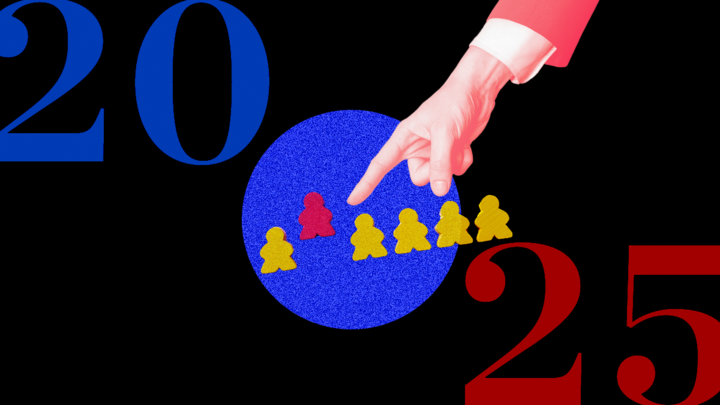Abortion rights, women of color, and LGBTQIA+ people are under attack. Pledge to join us in fighting for gender justice.
I’m both a working mom with a toddler and an early childhood education (ECE) policy professional: I know the importance of child care and early learning programs for families like mine. So when conservative think tanks put out proposals eliminating entire ECE programs or spouting misinformation and uncited claims about child care—I notice. And so do millions of mothers and working families across this country who are seeking real solutions to our child care crisis.
Project 2025, a conservative agenda put out by the Heritage Foundation for day one of a sympathetic presidency, has just one bullet point—five sentences—fully focused on child care (page 486), which contains misleading information, rejects universal child care, and focuses on proposals that only address certain options rather than the full array of choices that families need and deserve. Limiting options does not take into account the varying needs of families across the country, and does not address the large-scale investments necessary to properly support families and early educators. While they may be complementary, they are not the comprehensive solution our country needs. Through my own experience navigating the world of child care options, I know that there are so many factors to consider. What works best for one family and their unique needs may not work for another. Families need more, investment in and expansion of child care options, not less.
Right now we have a child care system in crisis, where only about one in six children eligible for child care assistance under federal law receive it, where families don’t have enough access to diverse care settings, and where early educators are paid poverty-level wages, making them one of the lowest-paid professions. Families with low incomes in rural areas and working nontraditional hours are the most impacted by historic underinvestments in child care. Without affordable and widely available child care, parents, particularly mothers, miss work, cut their hours, or leave the workforce altogether, sacrificing long-term earnings, which is why half of all mothers have no retirement savings.
Project 2025 has one other paragraph dedicated to early childhood programs—and it proposes to eliminate the Head Start program entirely (pg. 482). Head Start programs serve almost 800,000 children, pregnant women, and pregnant people. Of the children served, 37% are Latine, 29% are Black, 34% are dual language learners, and 14% are children with disabilities. Importantly, Head Start requires at least 10% of their enrollment spots go to children with disabilities, designates children in foster care and those experiencing homelessness as categorically eligible, and places no immigration restrictions on children to access the program.
The elimination of Head Start programs would close almost 50,000 classrooms, impacting 250,000 Head Start staff, including early educators. Eliminating Head Start would severely impact the availability and affordability of early childhood education options for families most in need of care, leading to a ripple effect on children’s healthy development and families’ economic stability.
Project 2025’s misinformation on early childhood education reflects a lack of real interest and borderline disdain for an issue so central to the lives of working families across the country. We need policymakers who understand that equitable access to early learning experiences, including child care and programs like Head Start, can provide young children with the positive and nurturing guidance they need to build skills like developing language, motor skills, and early literacy to be ready for kindergarten. We need policymakers to prioritize making child care more affordable and more available across a range of locations, settings, and time frames. And we need policymakers who understand that the United States is long overdue for a strong, equitable child care system that ensures every family has access to affordable, quality child care and that every early educator has adequate compensation and good working conditions. Project 2025 is not the answer.
To learn more about the potential impact of Project 2025, see NWLC’s new report: Project 2025 and what it will mean for women, families, and gender justice.
YOU MAY ALSO BE INTERESTED IN

Wins For Women: States Stepping Up for Equal Pay, Affordable and High Quality Child Care, Students’ Fair Access to School, and Transgender Rights

To Address Child Poverty, Invest in High-Quality Early Care and Education

The Child and Dependent Care Tax Credit Improvement Act Introduced in the House



